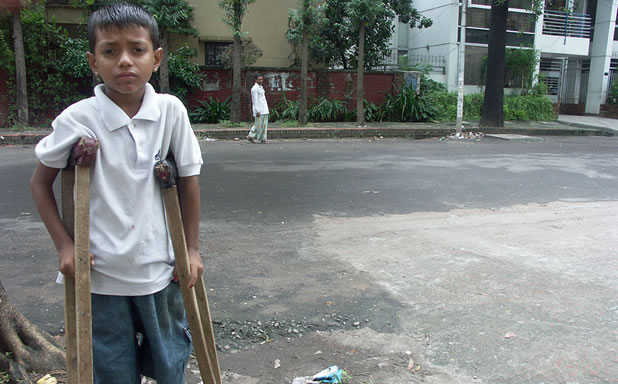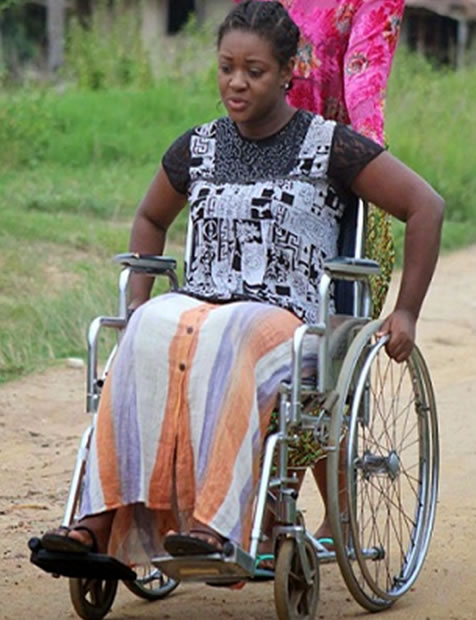Sep. 2004 Proverb: “If God breaks your leg, He will teach you how to limp.” – Dagbani (Ghana)
Naawuni yi kabigi a gbali, o ni wuhi a ni yen kpahi shem. (Dagbani)
If God breaks your leg, He will teach you how to limp. (English)

Dagbani (Ghana) Proverb
Background, Explanation, Meaning and Everyday Use
It is not unusual for people to suffer misfortunes in terms of sickness, accidents or other mishaps. We say that sickness or troubles do not respect any person or any state of life, man or woman, young or old, rich or poor. We will all suffer many difficulties in our lives. A farmer may work hard all during the rainy season in his rice farm. The rains may also be plentiful. The rice geminates and produces abundantly. Then a few days before he is to harvest the rice someone burns some brush in a nearby farm and the fire gets out of control and burns most of his rice field. The farmer does not despair. He harvests the remaining rice and knows that God will still provide for him as seen in this Ghanaian proverb of the Dagomba Ethnic Group.
 Biblical Parallels
Biblical Parallels
The Bible tells us about many people who had problems and difficulties and how God helped them. For example, in 2 Corinthians 12: 7-9 St. Paul says:
“To keep me from being puffed up with pride because of the many wonderful things I saw, I was given a painful physical ailment, which acts as Satan’s messenger to beat me and keep me from being proud. Three times I prayed to the Lord about this and asked him to take it away. But his answer was: “My grace is sufficient, for my power is strongest when you are weak.”
Contemporary Use and Religious Application
Today, more than ever before, many Christians want God to come and take all of their difficulties and problems away immediately. Some unscrupulous persons even try to deceive people by promising them that God will do this for them if they give a big amount of money to them or to their Church. Many Christians allow themselves to be deceived by these promises and end up disappointed and much poorer!
When many Dagombas who are not familiar with this proverb hear the first part of it – If God breaks your leg –, they expect the second part to say that he will heal you immediately and completely. That is why the answer given in the proverb – he will teach you how to limp — catches their attention.
When problems and misfortunes come our way God may not take them away in one instant or without our cooperation. God may have sent these situations or allowed us to get involved in certain problems so that we learn our need to depend on him in everything. But this is not a blind and passive dependency. God may want to teach us that we have been the cause of some of our problems. God leads us to do things that are life giving to ourselves and to others. When we are sick in body or mind he teaches us that we need to learn to care for our health by eating food that is healthy for our bodies, by getting sufficient physical exercise and sleep, by developing supportive and caring relationships, by praying together in faith, by turning away from destructive thoughts and action, by allowing others to help us in our needs.
So if God brings us into troubles or sufferings, He will also show us how to manage quite well in spite of the troubles or sufferings.
Rev. Kofi Ron Lange, SVD
Tamale Institute of Cross-Cultural Studies (TICCS)
Tamale, Ghana
